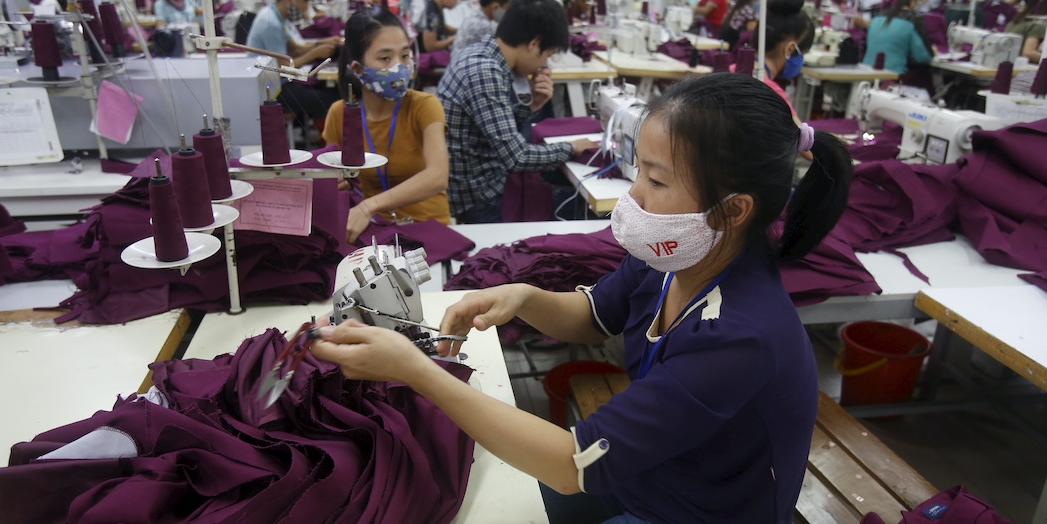By akademiotoelektronik, 01/10/2022
Global Supply Chains: After Textile Brands Flee Vietnam, Who's Next?
Global textile players are fleeing Vietnam due to the resurgence of Covid-19 in the country since April. A third of the Vietnamese population has indeed been reconfigured, and a large number of textile factories closed (35%, according to estimates), drying up the supply of international brands. Nike, 50% of whose shoes are made in Vietnam, for example, has just announced lower 2021 sales forecasts due to supply problems.
To date, 20% of international textile companies have left Vietnam. For Nike, Adidas and Uniqlo, these departures are announced as temporary. But the shock is still heavy with consequences.
40% drop in quality control in Vietnam
Quality control figures in Vietnam confirm this collapse: between the second and third quarters of 2021, inspection requests by Western brands in factories there fell by 40%! A revealing indicator of the state of the sector in the country.
This abrupt fall is all the more violent as Vietnam was until then rather a textbook case of successful management of the impact of Covid. Many of the international buyers had redirected their supplies there at the time of the tariff war between China and the United States, and in 2020 a policy of localized confinements had allowed factories to continue to operate. Then the Delta variant passed through there, in a country where vaccination is still struggling to take off.
Reconcile diversification of supply and visibility
Vietnam is a good example of one of the major lessons of recent months for buyers of global brands: it is necessary to diversify its sources of supply, to minimize the risks, to be able to react in an agile way to the closures and reopenings of the countries of sourcing and to be able to secure the means of production in the event of a hazard.

But this necessary diversification leads to another difficulty: that of visibility on its supply chain.
A barometer conducted by QIMA in the 1st quarter of 2021 revealed a 100% increase in factories singled out for ethical non-compliance between the first and second half of 2020.
The reason for this degradation? The unpreparedness. At the start of the epidemic, many manufacturers urgently relocated their purchases in other countries to new suppliers. The latter being themselves faced with great uncertainty about their commercial outlets, the generalized improvisation led them to take shortcuts on procedures and irregularities quickly accumulated. The cases of ethical non-compliance most often reported were related to non-compliance with working hours and non-compliance with wages.
Uncertainty in the supply chain will become the norm
What should we conclude? That between trade wars, the multiple upheavals of an endless epidemic, bottlenecks in maritime transport...: upheavals will become the norm. Manufacturers must prepare for this by being ready to diversify their sourcing, overnight, in an agile... but thoughtful way.
The resilience of its supply chain has indeed become a sine qua non of brand competitiveness. But agility and diversification should not necessarily mean precarious manufacturing conditions. We must learn from the lessons of last year.
Mathematically, if we increase the number of suppliers and countries from which to source, the difficulty of controlling the goods and the suppliers also increases. Audits must therefore be more regular to ensure ethics and compliance throughout the supply chain.
To do this, you need to start with people: having representatives on site, in the factories, to establish direct and constructive contacts with new suppliers and train them. Then you have to take advantage of the power of data: collecting information in real time, using digital quality and compliance management tools, allows you to make the fast, proactive and informed decisions that are needed to anticipate these new risks.
The closure of Vietnam is a violent episode, but cyclical
We have to get used to it: these changes of gear will now become the norm in our ultra-globalized supply chains, which are very exposed to hazards . So after Vietnam: who's next?
_________
(1) QIMA carries out quality controls and supplier CSR audits for 15,000 brands and importers of consumer goods.
Sébastien Breteau (*)4 mins
Share:
Related Articles